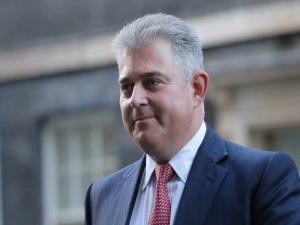
By PA and Q Radio News
Northern Ireland Secretary Brandon Lewis confirmed proposals for a statute of limitations “to apply equally to all Troubles-related incidents”, telling the Commons: “We know that the prospect of the end of criminal prosecutions will be difficult for some to accept and this is not a position we take lightly.
“But we’ve come to the view that this is the best and only way to facilitate an effective information retrieval and provision process, and the best way to help Northern Ireland move further along the road to reconciliation.
“It is in reality a painful recognition of the very reality of where we are.”
Brandon Lewis earlier said the UK Government intends to introduce legislation “by the end of this autumn”.
The other two proposals include a new independent body to focus on the recovery and provision of information about Troubles-related deaths and most serious injuries.
Mr Lewis told MPs: “This body will be focused on helping families to find out the truth of what happened to their loved ones. Where families do not want the past raked over again they would be able to make this clear.
“For those families that want to get answers, the body will have the full powers to seek access to information and find out what happened.”
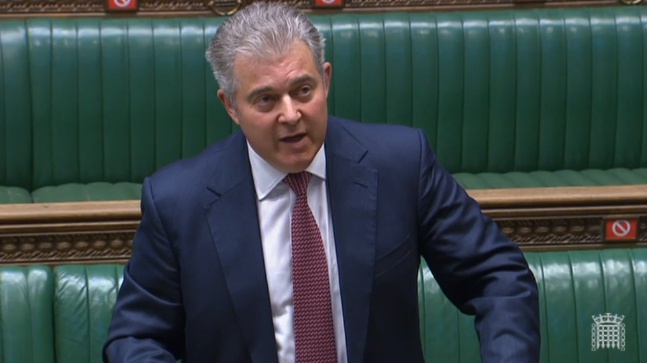
Mr Lewis said another proposal included a “major oral history initiative”, adding: “It’d create opportunities for people from all backgrounds to share their experiences and perspectives related to the Troubles and, crucially, to learn about those of others.”
Opening his statement to MPs, Brandon Lewis said: “It’s clear the current system for dealing with the legacy of the Troubles is not working.
“It’s now a difficult, in fact painful, truth that the focus on criminal investigations is increasingly unlikely to deliver successful criminal justice outcomes, but all the while it continues to divide communities and it fails to obtain answers for a majority of victims and families.
“The Police Service of Northern Ireland is currently considering almost 1,200 cases – which represents just a fraction of the 3,500 deaths and wider cases.
“These would take over 20 years to investigate. More than two-thirds of Troubles-related deaths occurred over 40 years ago and it is increasingly difficult for the courts to provide the families with the answers they are seeking.
“If we fail to act now to properly address, acknowledge and account for the legacy of the Troubles, we will be condemning current and future generations to yet further division – preventing reconciliation at both the individual and societal level.”
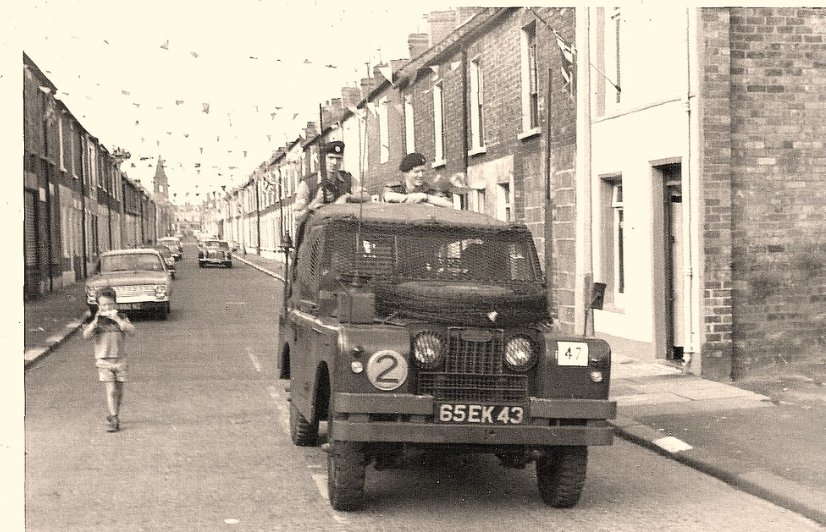
DUP Leader Sir Jeffrey Donaldson MP has said Government plans to introduce a statute of limitations for Troubles-related offences would be “rejected by everyone in Northern Ireland who stands for justice and the rule of law”.
Sir Jeffrey said: “The past is complex and we have always believed that any process to deal with the legacy of our troubled past should be victim-centred. Victims will see these proposals as perpetrator-focused rather than victim-focused and an insult to both the memory of those innocent victims who lost their lives during our Troubles and their families.
“Justice was corrupted in 1998 with the release of prisoners and then by Tony Blair’s on-the-run letters. Understandably many victims will feel that these proposals represent a further denial of the opportunity to secure justice for their loved ones.
“There can be no equivalence between the soldier and police officer who served their country and those cowardly terrorists who hid behind masks and terrorised under the cover of darkness. We find any such attempted equivalence as offensive.
“The Democratic Unionist Party, both publicly and privately, has, and continues to oppose, any form of amnesty. Everyone must be equal under the law and equally subject to the law. We will oppose any plans that give an effective amnesty to those who murdered and maimed over many decades.
“We understand that with the passage of time the prospect of justice is diminishing for many but these proposals, if passed, will extinguish that flickering flame of justice completely and is a moral overreach that cannot be accepted.”

Michael O’Hare, whose 12-year-old sister Majella was shot by a soldier in 1976, said the legacy proposals set out by Brandon Lewis were an “utter and unacceptable betrayal”.
Mr O’Hare, supported by Amnesty, is calling for an independent investigation into the killing.
He said: “These proposals are an utter and unacceptable betrayal – they must not succeed. The UK Government is inflicting great pain on my family and other victims denied justice.
“Our Majella had her life cruelly robbed, at the tender age of 12, by bullets from a soldier’s machine gun. She was an innocent child with her whole life ahead of her. The Ministry of Defence apologised to my family, but a proper investigation has never happened.
“The UK Government is now trying to deny us meaningful truth and justice forever. I will never stop fighting for Majella – my sister deserves justice. I hope these proposals are firmly rejected. I call on all parties involved to end the perpetual cycle of victims being failed.”
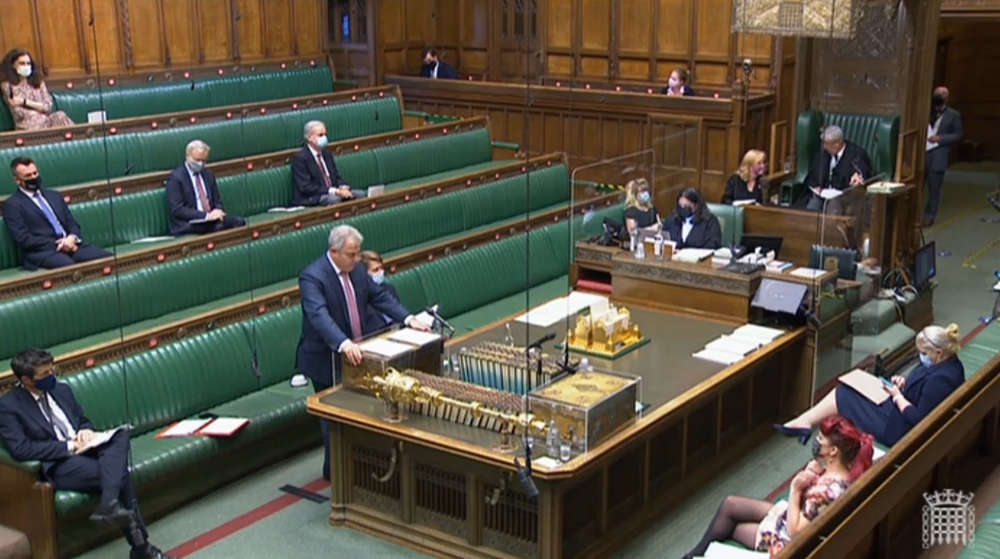
The Northern Ireland Secretary has said continuing with criminal investigations into the Troubles will be “unlikely” to resolve the legacy of the conflict.
Brandon Lewis was responding to Labour’s criticisms of the Government plan to bring an end to all historical prosecutions related to the Troubles.
He said: “It is increasingly clear and I have been frank with the House in my opening remarks, that any approach to dealing with the legacy of the past that focuses on criminal investigations will be unlikely to deliver the outcomes that people hope for. There is a point at which we in this House need to be honest with people about the very painful difficult reality of where we are today.”
Mr Lewis later added: “We are also very clear that we will never accept any moral equivalence between those that upheld the law in Northern Ireland – those that served their country – and those that sought to destroy it.”
The Northern Ireland Secretary also said Labour had not proposed “a single thing” about a way forward.
Relatives of those killed in the Ballymurphy Massacre watched on as Brandon Lewis spoke in the House of Commons:
A fresh inquest into the deaths of the woman and nine men earlier this year found they were “entirely innocent”.
Eileen Corr, daughter of Joseph Corr, said they see the proposed statute of limitations on Troubles prosecutions as the British Government’s “cynical attempt to bring an amnesty and a plan to bury its war crimes”.
She said the proposals “will not be tolerated and will be legally challenged”.
“The Ballymurphy Massacre inquest findings show how the law should work independently,” she said.
“All victims need to know the truth, they need to know what happened to their loved ones. We all bleed the same blood so everybody needs truth and justice and then maybe they can start living their lives.
“We spent 50 years trying to prove that our loved ones were innocent, there are loads of families out there like us and they all need to know the same thing.”
Mickey McKinney whose brother William was killed on Bloody Sunday has hit out at ministers who intend to introduce a statute of limitations which would end all prosecutions related to the Troubles. pic.twitter.com/2FENUNXPXl
— Hannah Spratt (@Radio_Han) July 14, 2021
Government proposals on dealing with legacy issues in Northern Ireland are an “assault on the rule of law and human rights”, Alliance Party MP Stephen Farry has said.
Mr Farry said: “This approach is framed solely around the perceived need to address what is a false narrative of vexatious investigations of Army veterans. It is shocking the Government facilitates a de facto amnesty across the board, including for republican and loyalist terrorists, to achieve this.
“Everyone should be and remain equal before the law. That is what we have when lawbreakers are pursued regardless of where they come from. The Government’s approach now brings the consequence of a false equivalence between all veterans, most of whom served the community with honour and respect for rule of law, and terrorists.
“Investigations are not just about prosecutions, but rather the option of prosecutions, which provide a discipline to interrogate evidence, whereas a truth or information recovery process can end up becoming self-serving and selective for those coming forward.
“If the Government seeks to impose this approach over the heads of Northern Ireland political parties and victims’ groups, it will have no legitimacy and credibility. Inevitably, the mechanisms will be struck down in the courts as not being compliant with Article 2 of the European Convention on Human Rights.”

Michelle O’Neill said the British Government’s proposals to introduce an amnesty to end prosecutions for crimes related to the Troubles in Northern Ireland are to protect state forces from their “dirty role” in Ireland.
The Northern Ireland deputy First Minister added: “I think that once again today, the British Government have set out their statement of intent, and it goes right to the highest echelons of government, because it begs the question why they’re doing this.
“Particularly given the fact that all the five political parties here are opposed to an amnesty, all the victims and survivor groups are opposed to amnesty, as is the Irish government.
“So you have to ask the question, why are the British Government intent in taking this route?
“It has to be two things in my mind. It has to be to protect state forces and their dirty role here in Ireland. I think it also has to be to protect those in suits who directed British state murder, murder of Irish citizens.
“That’s what the intention is and this does nothing to serve the needs and the interests of victims and survivors. We will continue to work with the victims and survivors because this is not acceptable.”
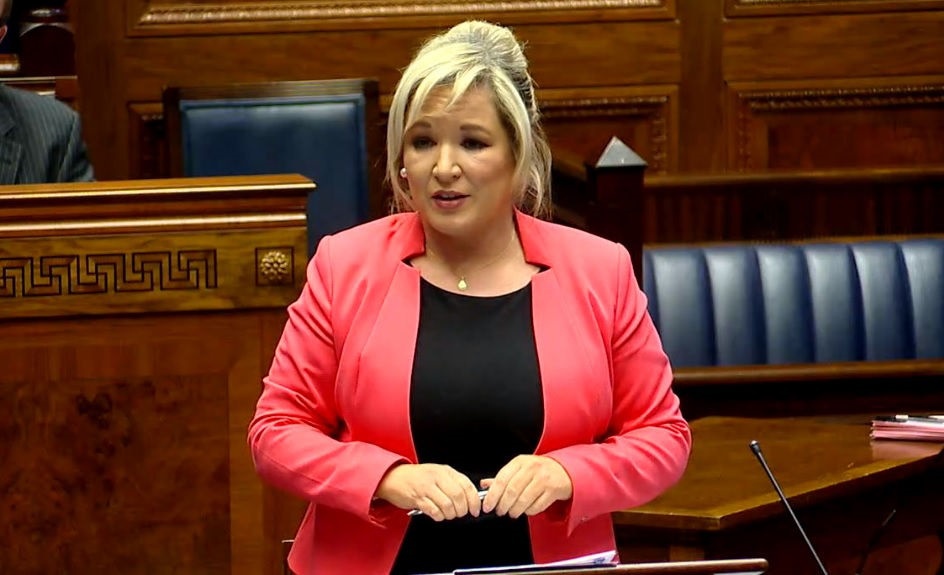
Innocent Victims United spokesman Kenny Donaldson has said it is “not for the UK Prime Minister, Taoiseach or any other representative of government to arbitrarily close down justice”.
He said: “For today’s politicians ‘The Troubles’ are ‘The Past’ and are treated with a past-tense approach.
“However, for those who were directly impacted, the legacy of that terror and violence remains with them, and they continue to yearn for justice and accountability for the heinous and unjust actions which they were subjected.”
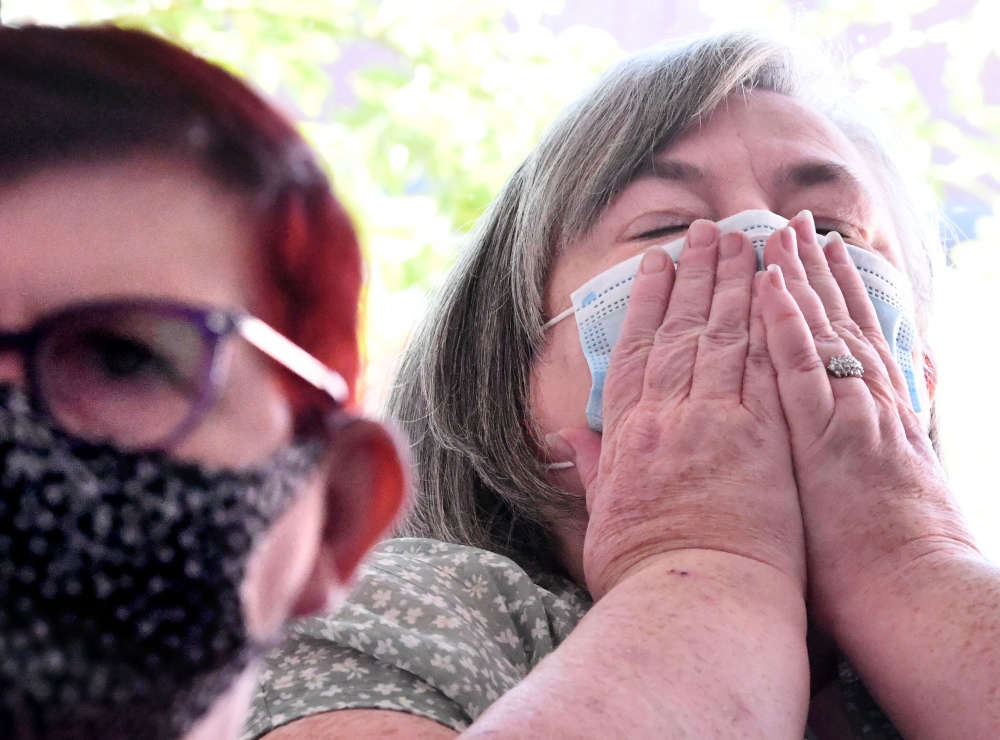
Pictured - Shooting victim Joan Connolly’s daughter Irene reacts in horror as Northern Ireland Secretary of State Brandon Lewis delivers his Commons statement on legacy murders and the way forward.
Ulster Unionist leader Doug Beattie has said Government plans to ban Troubles prosecutions “reinforces the injustice” which victims in Northern Ireland already feel.
Former Army captain Mr Beattie said: “It’s the wrong path and will tread on the emotions of innocent victims and their families. Nobody has the right to deny them the hope that someday, finally, they might see justice being done.”
He added: “We warned about this when some were championing a statute of limitations despite the inevitable conclusion that it would lead to an amnesty for terrorists.
“The UK Government is demonstrating a worrying naivety in these proposals. Guaranteeing complete disclosure of government papers in return for an ‘expectation’ others will do the same flies in the face of the evidence of past encounters. You will never get the truth from terrorists.
“There are thousands of victims’ families out there who have never had high-profile inquiries into their loved ones’ murders or have never even been entitled to desktop reviews. It’s not good enough. If there is new evidence, then it should be pursued.”
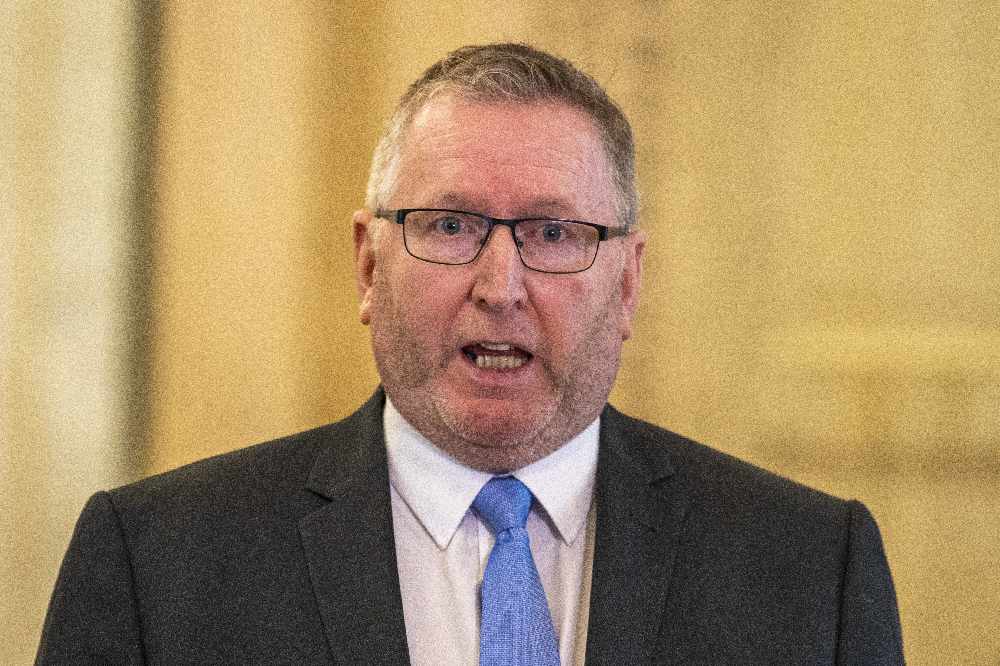
Ireland’s foreign affairs minister has said the proposals set out by the British Government do not reflect what the majority of people want in Northern Ireland.
Simon Coveney said the Stormont House Agreement is the “most balanced approach” in dealing with legacy issues.
“It ensures that people can achieve justice, if there is an evidence file that allows them to do that in court,” Mr Coveney said.
“It ensures that if people don’t want to pursue that route that they have an alternative route to establish truth and that there is a proper historic context around all of this tragedy and atrocity, and that there is a dedicated commitment to pursue reconciliation in a way that is structured and well-funded.
“What the British Government is now saying is that they don’t believe that there should be a legal route to justice any longer for Troubles-related crimes and incidents.
“I don’t believe that reflects what the majority of people in Northern Ireland want.
“It’s certainly not what political parties in Northern Ireland are willing to support, and victims groups that have spoken to me want the option of a justice-based truth approach in court as well as the potential for a prosecution and a conviction.”
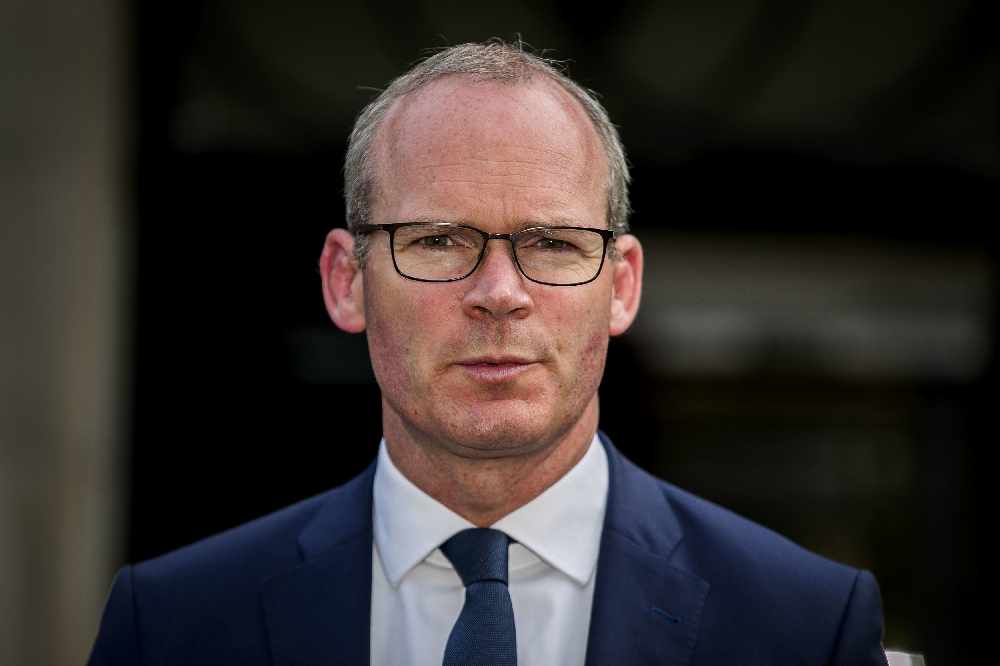


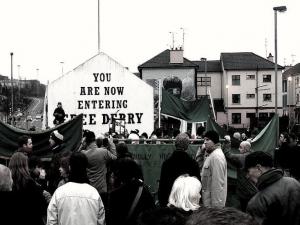 No prosecutions over allegations of false evidence at Bloody Sunday Inquiry
No prosecutions over allegations of false evidence at Bloody Sunday Inquiry
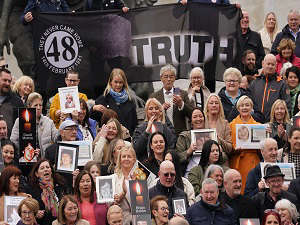 Calls for State apology for Stardust families after unlawful killing verdicts
Calls for State apology for Stardust families after unlawful killing verdicts
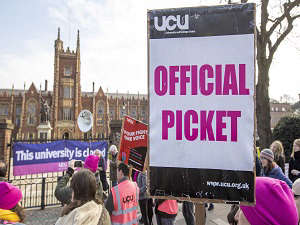 Lecturers to end industrial action after accepting pay offer
Lecturers to end industrial action after accepting pay offer
 Range of views on proposed smoking ban – Little-Pengelly
Range of views on proposed smoking ban – Little-Pengelly
 Opera director to use £5,000 award for projects to help vulnerable and homeless
Opera director to use £5,000 award for projects to help vulnerable and homeless